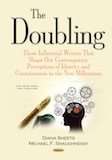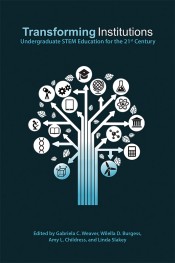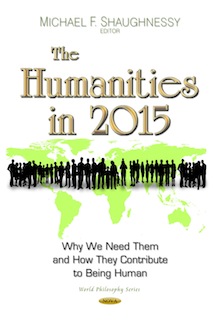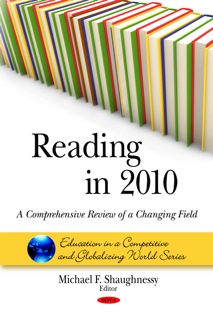Leibovich's This Town: The Tittle-Tattle Flibbertigibbet Musing of a Fashionisto Political Reporter in the Washington Beltway
Copyright © 2013 by Diana E. Sheets
The must read book of the summer was Mark Leibovich’sThis Town: Two Parties and a Funeral—plus plenty of valet parking!—in America’s Gilded Capital. What Leibovich has done is present governance as lifestyle, fashionisto politics in which prominent legislators have, in effect, become celebrities, in it for notoriety and mucho dinero.
Interpreted from another vantage point, politics in This Town is akin to professional wrestling, namely, the political game is fixed in order to ensure financial prosperity for the owners—in this case corporate interests—and their respective political designates. Those politicians who leave office upon retirement or as a result of losing an election or because of questionable ethics, nevertheless, if they have clout, generally succeed in enriching themselves by becoming lobbyists or consultants who parlay their insider knowledge or influential contacts in government to serve the interests of their clients. (Or consider Peter Schweizer’s somewhat different perspective in Extortion: How Politicians Extract Your Money, Buy Votes, and Line Their Own Pockets, just published by Houghton Mifflin Harcourt Trade. He argues that political extortion is a routine tactic of our government and its congressional leaders so that businesses, labor unions, and financial interests “pay up” to ensure their interests are represented.)
If Julia Phillips’s trash-talking Hollywood memoir—You’ll Never Eat Lunch in This Town Again (1991)—limited her dining in Tinseltown, Leibovich assures us that in Washington, you’ll “always have lunch in This Town again” and, no doubt, at taxpayer’s expense (This Town, Chapter 1, p. 27 of 387; Chapter 8, p. 216, Blue Rider Press, 2013, Kindle Edition).
This Townisn’t about is governance with a capital G. It isn’t a wonkish study of the three branches of government and their history and evolution. It doesn’t consider the merits of key legislation that passed or failed and what the consequences were as measured by the fortunes of ordinary Americans. It isn’t an analysis of the policy positions of Republicans and Democrats and why they are in perpetual deadlock.
No, This Town is tittle-tattle, the flibbertigibbet musings of a fashionisto political reporter covering the Washington beltway. Think of it as a wannabe “true-life” rendering of politics à la Aaron Sorkin’s The West Wing, which was long on innuendo and style and short on substance. But, then again, dishing the dirt on politicians is profitable for publishers and their authors, not to mention TV producers and the writers of their syndicated shows. It’s also sometimes deliciously naughty. These venues offer a forum for amateur political junkies to feast on the illusion that we are privy to the inside skinny—gossip with a capital G—about Washington and those “blood-sucking parasites” we refer to today as politicians. We feast on the tittle-tattle of the 24-hour news cycle and its barrage of tweets. No matter if it’s flibbertigibbet rather than substantive policy analysis. This Town is a bestseller about governance that really isn’t about governance at all. It’s about the lifestyles of the rich and/or famous masquerading as our political leaders. Needless to say, the “point of view” (POV) of this drama is most assuredly that of “the Dems.”
Real-life political drama boosts our adrenaline and feels to us as if we’re shooting up steroids. But, in fact, the daily machinations are rather dull, resembling The West Wing with its television characters always in crisis who, upon scrutiny, never actually seem to accomplish much. Or as Mark Salter, who served as John McCain’s chief of staff, as well as his principal advisor during his run for the presidency, reminds us, in Washington “on any given day, not much happens” (This Town, Chapter 4, p. 109). Although if we’re Politico junkies or cable and Internet news addicts, we’re tempted to conclude “the end is nigh.” Fiscal meltdown, global crisis, the specter of Armageddon, they all bleed red.
Need we state the obvious? Leibovich and his cohorts, our Washington political journalists, are also embedded in the Washington firmament. They’re principal players in This Town. Think of them as great whites trolling the waterways in search of prey—the subject of their next blog or column to be pitched as headline news. These reporters have access. They write books. These books, if successful, have the potential to gain traction on the Internet and become films (Primary Colors, http://en.wikipedia.org/wiki/Primary_Colors_%28film%29, or Game Change, http://en.wikipedia.org/wiki/Game_Change_%28film%29). The reporters and Washington Bureau Chiefs now work the political power/celebrity spectrum, moving from one end to the other. “Quelle horreur!” They sometimes even end up as political consultants or beltway lobbyists.
Americans remain deeply divided with polarized worldviews even as the government lurches into a Democratic stranglehold and the prospect of financial insolvency. So we have to ask: If politics masquerades as The West Wing featuring “real life” cameos of the players and we become privy to all that tittle-tattle flibbertigibbet musings with the ever-present stench of corruption does this qualify as political analysis? Most assuredly not! But if the scandalmongering that embodies today’s political events makes us yearn for The West Wing rendering of political life to the extent that the simulacrum becomes our perceived reality, then, This Town stokes like “Big Blue” Crystal Meth.
Yo! What’s the plot? Dial it back to 2008. Our story begins with Tim Russert’s highly publicized memorial service at the Kennedy Center. To understand the power fulcrum of Washington, there’s nothing better than a funeral coupled with a celebrity-studded memorial. Russert was the host of NBC’s Meet the Press for sixteen years, a program that was watched weekly by more than four million viewers. He was attributed by Time magazine in 2008 as one of the one hundred most influential people in the world, http://tinyurl.com/k74xbfb.
Or as Leibovich notes, “No one was bigger than Tim within the celebrity-industrial complex that had exploded at the nexus of politics and media in the late twentieth and early twenty-first centuries” (Chapter 1, p. 21). Russert, he suggests, was “the bold-faced impresario of the longest-running show on television and the most powerful unelected figure in the country’s most powerful, prosperous, and disappointing city” (Prologue, p. 6).
Now even if we take issue with this inflated estimation of Russert, it helps to explain why nearly everyone in the media saturated the airwaves with fawning tributes to him. After all, in this age of narcissism, what could be more important to that industry than covering a celebrity funeral, followed by a highly publicized memorial that were, in essence, all about them?
Since access to television viewers connotes “cha ching”—here defined as power, fame, notoriety sought after in This Town—Tim’s hard-hitting interviews were perceived as having made or broken reputations. The politics of This Town is driven by testosterone. While equal rights may have permeated the American mindset, in the world of politics—journalists, politicians, lobbyists, and influence seekers—men prevail. There’s a frat-boy quality, a gin-room feel, to what Leibovich refers to as “The Club,” “that spinning cabal of ‘people in politics and media’ and the supporting sectors that never get voted out or term-limited or, God forbid, decide on their own that it is time to return home to the farm. The Club can be as potent in D.C. as Congress, its members harder to shed than ten-term incumbents” (Prologue, p. 7).
Andrea Mitchell, Chief Foreign Affairs Correspondent for NBC News, might—depending upon your political perspective—have a good journalistic reputation. Tammy Haddad (a.k.a. “the Tamster”), president of Haddad Media and erstwhile Washington social media diva, may be the latest phenomenon with her video recordings of the power players of Washington that for those on the receiving end has the sensations and discomfort of “a light enema” (Chapter 2, p. 62). But these gals, respectively, serious or frivolous, remain peripheral to the locus of power in This Town, which is saturated with Big Important Men (BIM). Not surprisingly, Nancy Pelosi and her ilk have only a spectral presence in Leibovich’s This Town.
In the unfolding drama of Washington politics, we witness Tim Russert’s memorial. We’re presented with an array of public personalities preening in the spotlight. Grief on public display? Not so much. Rather, there’s the tantalizing opportunity for access to power heightened by the specter of witnessing it on television. If This Town: Two Parties and a Funeral? floats aloft, its vestigial images saturated with metaphorical associations to the British film Four Weddings and a Funeral (1994) that never quite materialize, pay no mind. Cinematic folly in this instance is a poor substitute to the tantalizing allure of political power.
Back to the plot. At the memorial service there’s “Bill” and “Hill” walking down an aisle of the Kennedy Center. They’re given a wide birth. Remember? Hill just lost the democratic presidential nomination to Barack. There’s Gibbs, Obama’s future Press Secretary. Next to him is “Axe” (David Axelrod), who will serve as Senior Advisor to Obama and, later, his reelection campaign advisor. Over there are Joe Scarborough and Mika Brzezinski of the MSNBC show “Morning Joe.” The list of political and public celebrities goes on and on. We get the picture.
What Leibovich seeks to convey is that This Town is a secret society or cabal: “The city of Washington feels like a conspiracy we’re all in together, and nobody else in America quite understands, even though they pay for it” (Chapter 1, p. 25).
The narrative unfolds with a series of snarky vignettes about some of the more colorful personalities in The Club while tilting coverage decidedly in favor of the Dems. This is dramatically realized in the sympathetic portrayal of Harry Reid, Senate Majority Leader (Nevada). What’s important to note here is how Reid’s coverage contrasts with that of Republican Senator Tom Coburn (Oklahoma). The latter is presented as a shovel-wielding conservative who kills water moccasins swimming in his pool “by slicing their heads off with the sharp edge of a shovel” (Chapter 3, p. 90). Then, there’s Leibovich’s portrayal of Senator Trent Lott (Mississippi), the latter of whom was forced to resign in 2002 as Senate Majority Leader after praising Strom Thurmond’s 1948 segregationist policies. Lott later retired from the Senate to form his own lobbying firm just steps from the White House. The implication is clear: whatever scandals and disgraces politicians may endure—and here the journalist tends to concentrate more on Republicans than Democrats—the most successful of them, nevertheless, rise like the Phoenix from its ashes to great financial success as beltway lobbyists. Finally, Leibovich tarnishes House of Representatives Darrell Issa (California) by association, that is, through his coverage of Issa’s former press secretary Kurt Bardella.
It’s not that these Republicans can’t or shouldn’t be the subject of scrutiny. They can; they should, and they must. But this coverage is tilted, on balance, to focus more of Republican shortcomings, which certainly will resonate with Leibovich’s progressive readers. All the while, the reporter fails to provide substance about the shortcomings of policies and legislation that should rightfully be the object of his analysis. The result is the reader is tempted to say—in the immortal words of former Democratic presidential candidate Walter Mondale with respect to his erstwhile Democratic rival Gary Hart in 1984 (in reference to the Wendy’s advertising slogan of that time), “Where’s the beef?” Yes, even in Leibovich’s portrayal of Reid there is no meaty substance. Just a humanizing portrait of a man that, he rightfully suggests, has “all the magnetism of a dried snail” Chapter 3, p. 69).
So, what do we learn? Senate Majority Leader Harry Reid is a practicing Mormon. He was born in Searchlight, Nevada, the son of a minor and a laundress. His early years were difficult. No hot water. No indoor toilet. No telephone. His father committed suicide: his mother then struggled to support the family. Leibovich wants us to believe that Reid operates a tight ship. What he possesses, we are told, is discipline, brevity, and blunt leadership. Nevertheless, Reid can be racially toxic as well. During the 2008 presidential campaign he commented that Obama was a “light-skinned” African-American, noting that he had no “Negro dialect, unless he wanted to have one” (Chapter 11, pp. 290-1, citing John Heilemann and Mark Halperin’s, Game Change: Obama and the Clintons, McCain and Palin, and the Race of a Lifetime, Harper, 2010, p. 36). But because of his enthusiastic support of Obama, Reid’s position as Senate Majority Leader, unlike that of Senator Trent Lott, was never derailed due to racial innuendo.
Leibovich’s portrayal of Reid focuses on his legislative success in marshaling through the Affordable Care Act (Obamacare). We are witness to Reid’s cunning appreciation of his Senatorial minions through the bestowing of cherished “I love yous” for Dems who rally to his causes (Chapter 3, p. 70). Noticeably absent in this portrayal is an analysis of Reid’s failure as Senate Majority Leader to pass a “budget resolution” since 2009. Had Reid acted responsibly in this capacity, then the Dems would have to make difficult decisions about how to address huge deficits that almost certainly would have resulted in tax increases and unpopular spending cuts that might actually have cost them their Senate majority. Consequently, under Reid’s leadership, the Senate Dems have willfully refused to subject social welfare policy to the realistic scrutiny of fiscal analysis.
Leibovich wants his readers to develop an appreciation of, if not an admiration for, Reid’s accomplishments. What the journalist fails to do is explore the gritty details driving Reid’s tactical success in obtaining Senate support for the Affordable Care Act, which along with Nancy Pelosi’s assistance as Speaker of the House of Representatives, then controlled by the Democrats (2007-2011), assured its passage. Nevertheless, this victory was a hollow one. The legislation was meant to be all things to a welfare state in its advocacy of assuaging all needs while assuming no responsibility for managing the fiscal stringencies of the bottom line. In other words, Harry Reid can be characterized a hero for the Dems only because there is no “there there.” The personal aura of the Dried Snail trumps rigorous scrutiny. Only by this means does the reader gain a measure of appreciation for Harry Reid.
Then, there’s the profile of Republican flack, Kurt Bardella. He served as former aide to Darrell Issa, current Committee Chair of the House Oversight and Government Reform Committee charged with investigating the Benghazi attacks in Libya that resulted in the death of Ambassador Stevens and three other Americans. Bardella was hired to develop Issa’s profile, and so he did, all the while seeking to enhance his own reputation. By 2009 Bardella was cited as one of “50 politicos to watch” (http://dyn.politico.com/printstory.cfm?uuid=5173BCC9-18FE-70B2-A8E08D5F9162C496; also cited in Leibovich’s “How to Win in Washington,” The New York Times Magazine, 7/4/2013, http://www.nytimes.com/2013/07/07/magazine/how-to-win-in-washington.html?_r=0, an excerpt from Chapter 8 in This Town).
Bardella’s excesses seem more The West Wing than Beltway governance until, of course, he admitted to blind copying Leibovich on a number of his political e-mail correspondences with other political operatives (Jake Sherman & Marin Cogan, “Darrell Issa probes staff; spokesman Kurt Bardella at center of controversy,” February 28, 2011, Updated 3/2/11, http://www.politico.com/news/stories/0211/50365.html; Mark Leibovich, “How to Win in Washington,” excerpted from Chapter 8 of This Town).
Thus, in the embedded arena of Washington politics, Leibovich becomes a central character in his political story. What happens to Bardella? He was fired and subsequently rehired by Issa before leaving in September of 2013 to start his own public relations firm, Endeavor Strategic Communications (Christina Wilkie, “Kurt Bardella, Longtime Issa Aide, Leaves to Start PR Firm,” Huffington Post, 9/3/13, http://www.huffingtonpost.com/2013/09/03/kurt-bardella_n_3862071.html). Proof positive that in if you’re somebody you’ll always eat lunch in This Town again while making oodles and oodles of dollars as a Beltway consultant.
Which is one of Leibovich’s arguments, namely, that This Town is a “big, lucrative revolving door between money, media, and politics” (Chapter 1, p. 20). In “Obama-era Washington,” he suggests, we have arrived at an era where “everyone is now . . . a special interest. . . .” (Chapter 2, p. 57). Indeed, self-branding is so extensive, according to Leibovich, that Washington resembles the character in the satirical newspaper The Onion, who explains, that he’s “the CEO of the company called ‘Me’” (This Town, Chapter 2, p. 56; “I Am A Brand,” Pathetic Man Says,” The Onion, November 29, 2012, http://www.theonion.com/articles/i-am-a-brand-pathetic-man-says,30545/).
But of course, it’s more than that. Every person, every politician, every player in Washington has the potential to ride the continuum from aspiring politico to seasoned lobbyist. There’s the Democratic lobbyist Jack Quinn who pared up with Republican Ed Gillespie, a political strategist. Both worked in President Clinton’s administration and capitalized on their contacts to create a “one-stop” consulting shop for Democrats, Republicans, and their brethren. When the two men sold their lobbying business, their total earnings were at least $40 million (Chapter 1, p. 28).
Let us not forget the Washington superlawyer and paramount dealmaker Robert Barnett, whom Democrats and Republicans alike seek when attempting to leverage mega-media deals (Chapter 2, pp. 47-53). Or the Beltway Republican lobbyist Jack Abramoff (Chapter 4, p. 96, Chapter 7, pp. 163, 165, Chapter 8, p. 220, Chapter 11, p. 278), whose actions led to his own conviction along with twenty-one others. And what about Senator Chris Dodd who obtained a special rate mortgage for himself from Countrywide and subsequently attempted to grant special favors to the bank in the aftermath of the housing market fiasco? Connecticut voters never forgave him. Dodd was forced to retire from the U.S. Senate only to be appointed head of the Motion Picture Association of America, the principal lobbying institution for Hollywood. (Chapter 7, pp. 158-161, 164).
With the election of Obama in 2008, Republicans and Democrats were at loggerheads. As one Republican lobbyist confessed in an interview at The Huffington Post, “We get paid to get Republicans pissed off at Democrats, which they rightfully are. It’s the easiest thing in the world. It’s like getting paid to get you to love your mother.” Not surprisingly in 2009 $3.47 billion was spent lobbying the federal government as compared with $3.3 billion in 2008. Thus, even as the global economy was disassembling, influence peddling was on the increase (Chapter 4, p. 98, citing Arthur Delaney, “It’s Official: 2009 Was Record Year For Lobbying, Despite Recession,” The Huffington Post, first posted 4/14/10. Updated 5/25/11, http://www.huffingtonpost.com/2010/02/12/its-official-2009-was-rec_n_460160.html).
If This Town was once a place where politicians worked before eventually retiring to their home constituencies, that town is no more. Leibovich suggest that “the biggest shift in Washington over the last forty or so years has been the arrival of Big Money and politics as an industry” (Chapter 4, p. 99). While the “old Washington” was “saturated with politics,” that politics was relatively “small” and “self-contained,” more “mom-and-pop operations” than the interest groups that drive it today (p. 99). Or as Jill Lepore argued in The New Yorker, by the “middle decades of the twentieth century, political consultants replaced party bosses as the wielders of political power,” and the result was that influence was “gained not by votes but by money” (Chapter 4, p. 100, citing Jill Lepore, “The Lie Factory: How politics became a business,” The New Yorker, September 24, 2012, Vol. 88, Issue 29, pp. 50-59, http://www.newyorker.com/reporting/2012/09/24/120924fa_fact_lepore?currentPage=2).
One of the most enduring portraits of This Town is the portrayal of Richard Holbrooke. Nevertheless, Leibovich’s analysis owes more to James Mann’s The Obamians: The Struggle Inside the White House to Redefine American Power (Viking, 2012), George Packer’s interview with Holbrooke, “The Last Mission,” published in The New Yorker, and Bob Woodward’s Obama’s Wars (Simon and Schuster, 2010) than to his investigative skills as a political journalist.
However, Leibovich correctly assesses Holbrooke’s stature, and why it mattered: “Other than possibly George F. Kennan, Holbrooke might have been the most accomplished American diplomat who never achieved cabinet rank” (Chapter 9, p. 223). Holbrooke worked for Averell Harriman, the principal U.S. negotiator for Paris Peace Accords that ultimately concluded our involvement in the Vietnam War (1973). He was largely responsible for brokering peace talks during the Clinton administration that brought an end to the Balkan wars. In 2009 and 2010 Holbrooke was the Special Representative for Afghanistan and Pakistan (AfPak). His inability to gain Obama’s support diminished his ability to leverage power for brokering a peace in that region and prematurely contributed to his death.
Holbrooke’s diplomatic approach harkened back to a diplomatic era when America’s Foreign Service operated at the axis of global power. Leadership was subtle, steeped in historical and cultural references, hierarchical in character, and forceful in its execution. To that extent Holbrooke was the perfect emissary for the Clinton administration, which understood power and its exercise of authority. If Bill and Hill were driven to big personalities and the force of intellect, “no-drama Obama” was and is the opposite (Chapter 10, pp. 226, 238-42).
Literary Gulag suggests that our current president matured in the post-modern academic environment when authority was eviscerated and cultural relativism celebrated. Given that perspective, power is perceived as evil or a necessary evil except for its ability to enforce social justice. Little surprise, therefore, that Leibovich presents Obama as a solitary figure who, unlike the Clintons, never likes to be in a room with a “super-sized” personality that might challenge his intellect or authority.
Indeed, Literary Gulag argues that Obama’s worldview is representative of a new generation of academically-inspired leaders steeped in the globalizing perspective of Fareed Zakaria’s The Post-American World coupled with the social justice beliefs espoused by John Rawls in A Theory of Justice (for an elaboration see my essay “The Influences Driving Obama’s Narrative: What’s at Stake in the Civil War Between Democrats and Republicans in the 2010 Elections” posted on my website Literary Gulag and on the IDEALS website at the University of Illinois, https://www.ideals.illinois.edu/bitstream/handle/2142/18072/Ideals-58.htm?sequence=5). Thus Holbrooke, a man who thrived when operating in the corridors of power and was never more effective when negotiating diplomatic treaties with global leaders, would find himself mocked and marginalized by the Obama administration as a temperamental grandstander who sucked up all the oxygen in the room (Chapter 9, pp. 223-30, 234, 238-41).
What makes Leibovich’s frothy portrait interesting is the realization, by extrapolation, that these new generational values embodied by the Obama administration have now become entrenched. For that reason, Literary Gulag suggests that the new diplomatic locus of power does not reside with the “masculine” authority of a Richard Holbrooke or even a Madeline Albright but rather with the “feminized” social justice precepts enumerated by Susan Rice (National Security Advisor) and Samantha Power (U.S. Ambassador to the United Nations). Naturally, the Obama administration’s worldview is the antithesis of George W. Bush and Dick Chaney’s vision exemplified by Ambassador John Bolton in the United Nations.
Leibovich’s This Town concludes with “The Last Party” given at the home of Ben Bradlee. By all rights that evening should have been a celebration of the accomplishments of a man whose long and illustrious career as the executive editor of The Washington Post resulted in the publication of the Pentagon Papers and a series of articles by Bob Woodward and Carl Bernstein that exposed the Watergate scandal. Bradlee’s courage, as well as the determination of Woodward and Bernstein to get to the bottom of their story, even if exposed corruption at the highest levels of government, ultimately lead to the resignation of President Nixon. For forty-plus years The Washington Post and the investigative efforts of Woodward and Bernstein had been the celebrated standard for path-breaking journalism.
Nevertheless, “The Last Party” reads as if it’s a dirge. Ben Bradlee at ninety-one is characterized as elderly, forgetful, and likely to have dementia. Nor is the fate of The Washington Post much better. At the time of the publication of This Town, the newspaper is teetering on the verge of insolvency. Many of its best reporters have left. In the age of the 24-hour news cycle, the Internet has become the “go-to” source for information. Reporters no longer have a beat: they troll the Internet. People no longer read: they watch television. Journalists are no longer perceived as writing the first draft of history, as Theodore H. White saw his role when he published The Making of the President, 1960. Today, if journalists want to sell “copy,” they, like Leibovich, are much more inclined to posture as celebrities embedded in the very story they are covering rather than impartial observers rendering painful or enlightening truths. In any case, most “journalists” today reputed to have clout are actually television commentators with personas resembling “Sybil the Soothsayer”—all tittle-tattle and false prophecy—so memorably conveyed by Paddy Chayefsky in his movie Network (1976).
In our demonic age, the new, new medium is, of course, the Internet. Politico, founded in 2007, although nominally a Washington paper, sought to dominate the political news blogosphere. Its chief political correspondent, Mike Allen, became, as Leibovich notes, “The man the White House wakes up to.” Allen’s daily “Playbook” renders political happenings—large and small, unfolding in the moment-by-moment myopic ecosphere of our nation’s capital—in the ephemeral now.
Then in August, after This Town was published and prominently featured in The New York Times Best Seller Nonfiction lists, The Washington Post was purchased by Jeffrey Bezos, owner of Amazon, for a scant 250 million. In the age of Internet journalism, news and political commentary have been degraded to “content” with negligible monetary value unless written or spoken by celebrities and gurus. Little surprise, then, that with Bezos now at the helm of The Washington Post, he intends to reinvent news content for our digital age.
Nor is Bezos alone in his efforts to reshape journalism and online content. By October, 2013 eBay founder Pierre Omidyar had joined ranks with Glenn Greenwald to form a new online publishing venture that Ryan Chittum, writing for Columbia Journalism Review, feels will upend the traditional and online news sources (“The extraordinary promised of the new Greenwald-Omidyar venture (UPDATED),” http://www.cjr.org/the_audit/the_extraordinary_promise_of_t.php). For those readers unfamiliar with Greenwald, he is an American journalist. While working for the British newspaper The Guardian, he published classified documents held by the National Security Administration, which were illegally obtained by Edward Snowden. They revealed widespread surveillance by both the United States and British governments.
This Townconcludes as an elegy, sadly reminiscent about the heroic bygone era of print journalism. In its place we have the raucous age of online digital communication replete with blogs, tweets, and WikiLeaks.
Will journalism survive in any meaningful sense? Stay tuned.









